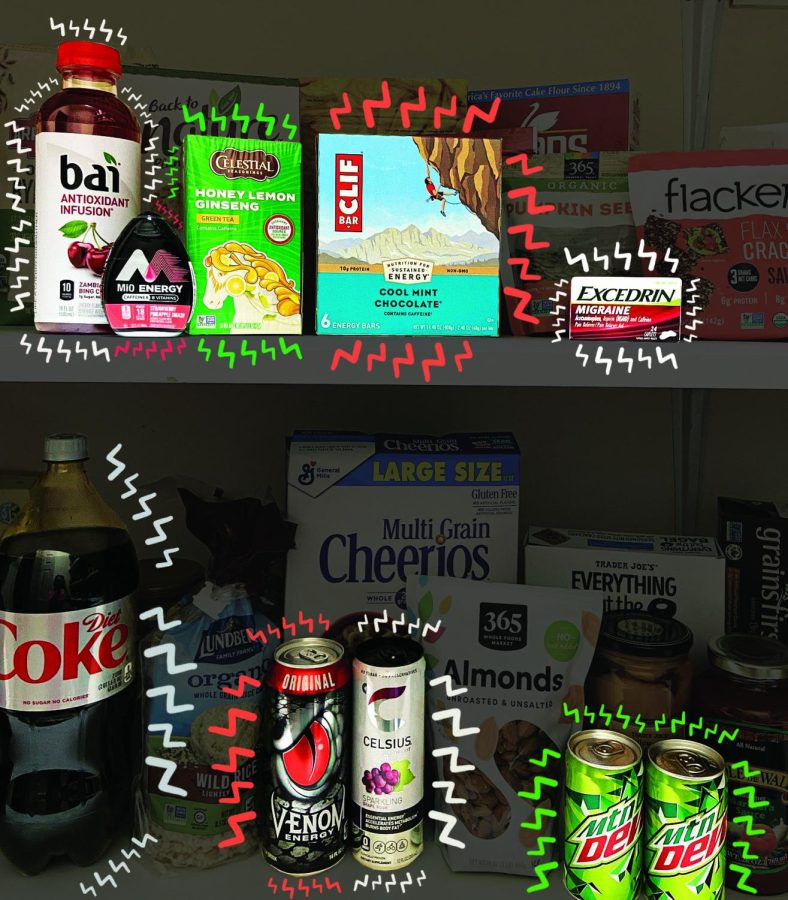Uncovering the impacts of hidden caffeine
Many foods and beverages, such as those emphasized in this photo, contain hidden caffeine. Consistently consuming caffeine over the recommended limit can lead to overstimulation and insomnia.
When debating between ordering an iced chai tea latte or a refresher from Starbucks, junior Ani Nangia ultimately chose the refresher because she believed it did not contain caffeine.
“I was shocked at the beginning,” said Nangia. “I didn’t realize that [refreshers] had caffeine in them. The reason I was getting refreshers is [because] I was trying to avoid caffeine.”
A grande Starbucks Refresher has about 45 milligrams of caffeine. The same size of a Starbucks brewed coffee contains about 330 milligrams of caffeine.
Hidden caffeine can be described as caffeine in foods and beverages that are not commonly known.
Caffeine can be found in matcha and energy drinks. It can also be found in various types of chocolates, teas, sodas and pain relief formulas.
Hidden caffeine can also be defined as a large concentration of caffeine from a well-known source.
It is common for adolescents to be unaware of how much caffeine is in expected sources of caffeine, like coffee, energy drinks and soda, registered dietician Danielle Battram said.
The recommended daily caffeine limit for adolescents is 100 milligrams.
“I think people are unaware of the amount [of caffeine] that’s in the common sources that people are consuming,” Battram said.
Nangia tries to avoid consuming caffeine so she does not feel she needs to have it every day.
“I feel like if I don’t start by having that caffeine every single day in order to feel energized and wake up, then it’ll be easier for me to not have it in the future,” Nangia said.
Caffeine can have varying effects, but it typically makes people feel more alert and awake. It can also have negative effects, especially for adolescents.
“Most notably, [caffeine affects] sleep, which is key to overall growth and development and overall health,” registered dietician Lauren Harris-Pincus said.
Effects of consuming caffeine above the recommended limit can include jitteriness, irritability, nervousness, headaches, an upset stomach, anxiety, heart palpitations and increased blood pressure.
Consistently consuming caffeine above the recommended limit can lead to overstimulation, which can cause the development of psychological issues and relationship problems, said Dr. Stephen Devries, executive director of the nonprofit Gaples Institute.
According to Harris-Pincus, she wants teenagers to be aware of the different foods and drinks that contain caffeine, and she wants teenagers to understand how caffeine can personally affect them.
According to Nangia, “Knowing that [caffeine] doesn’t have that big of an effect on me, I will probably continue to get [refreshers]. Maybe less frequently than I did [before].”


